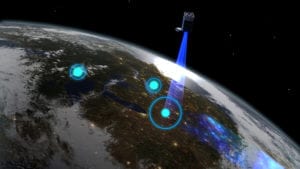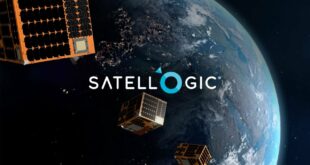
The New Zealand Government announced on 7 November 2019 it would contribute NZ$26 million towards MethaneSAT, a state-of-the-art satellite designed to detect global methane emissions with unprecedented accuracy. The mission is being led by United States-based NGO Environmental Defense Fund (EDF) and its subsidiary MethaneSAT LLC, who have signed a partnership agreement with the Ministry of Business, Innovation and Employment (MBIE).
Dr. Peter Crabtree, GM of Science, Innovation and International at MBIE and head of the New Zealand Space Agency, said that MethaneSAT is exactly the kind of science that New Zealand should be investing in.
“This investment has three key benefits for New Zealand – we are showing global leadership by investing in a science mission that will directly help to fight climate change, we are giving Kiwi researchers the opportunity to join a cutting-edge climate science mission that will see them working alongside the world’s best climate scientists and aerospace experts, and we are building important capability in our rapidly growing space sector,” Dr. Crabtree said.
“New Zealand already makes significant investments in climate science and in research to reduce domestic greenhouse gas emissions. We will be building on these efforts by working with EDF, which has a proven track record in conducting excellent science to inform decision making.”
EDF Chief Executive Fred Krupp says that the New Zealand Government is an ideal mission partner because both parties share values which underpin the mission’s purpose.
“Environmental Defense Fund is a highly professional organisation with a proven track record in conducting excellent science to inform evidence-based decision making by governments and industry,” Mr. Krupp said.
“We share values related to environmental leadership, transparency, accountability, and a commitment to performing excellent research.”
Dr. Crabtree said New Zealand’s space sector has a spirit of innovative thinking which guided the decision to partner with EDF.
“EDF are following global best practice in mission planning and have brought together a high-calibre team with deep space sector expertise to deliver and oversee the mission.”
While EDF and MethaneSAT are initially focused on collecting data about methane emissions from the oil and gas industry, Dr. Crabtree says New Zealand will work with EDF to consider how we might use the data to investigate and potentially lead an atmospheric science component of the mission related to agricultural methane emissions.
MethaneSAT is scheduled to launch in 2022. MBIE and EDF will confirm the location of the New Zealand-based mission control centre and New Zealand’s role in the launch and the science components of the mission in coming months.





